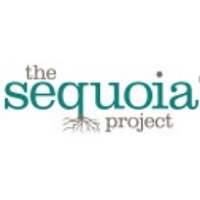 Workgroup to Consider Lessons Learned from COVID-19 Response and More
Workgroup to Consider Lessons Learned from COVID-19 Response and More
The Sequoia Project (@sequoiaproject), a non-profit and trusted advocate for nationwide interoperability, is launching a new Emergency Preparedness Information Workgroup this month as part of the organization’s Interoperability Matters Cooperative. This workgroup will consider lessons learned from the response to the ongoing COVID pandemic and determine appropriate recommendations for making information more readily available to support emergency preparedness for future disasters.
The workgroup will focus on a range of interoperability and health IT challenges for states, such as policy and regulatory issues, programmatic challenges, data privacy, funding, resources, and communications, in regard to ensuring information is readily accessible to support emergency preparedness. The workgroup will also serve as a community of practice, providing a forum for states and other stakeholders to share experiences, best practices, and develop recommendations to improve interoperability for emergency preparedness.
“States and local agencies, such as public health agencies, have had to rapidly adapt to unforeseen circumstances caused by the current pandemic. They’re often challenged to readily access the information they need for response efforts,” said Debbie Condrey, chief information officer of The Sequoia Project and facilitator of the workgroup. “With this new workgroup, we’re aiming to apply the lessons learned to improve timely access to information to support emergency preparedness for the future. We look forward to working together to find solutions to the interoperability challenges facing states during these unprecedented times.”
Initially, workgroup participants will include representatives from California EMSA, California Health Information Exchange (HIE), Common Spirit, Florida HIE, Florida Public Health, Georgia HIE, North Carolina Department of Health, Texas eHealth Alliance, and Texas Health Services Authority. There are also participants from several key federal partners.
The group will meet monthly beginning in January, with the following deliverables: 1) lessons learned from response to the COVID-19 pandemic as it relates to health IT and interoperability; 2) prioritized opportunities to address issues that impede public health access to information for disaster response efforts, and; 3) community of practice where public health, Medicaid and other state entities and federal partners can discuss innovations and blockers to those innovations. Meeting minutes will be shared with the public on The Sequoia Project’s website and progress highlighted in quarterly public informational calls.
View more information on The Sequoia Project’s Emergency Preparedness Information Workgroup, workgroup participants and find materials for upcoming meetings.
About The Sequoia Project
The Sequoia Project is a non-profit, 501c3, public-private collaborative chartered to advance implementation of secure, interoperable nationwide health information exchange. The Sequoia Project focuses on solving real-world interoperability challenges, and brings together public and private stakeholders in forums like the Interoperability Matters cooperative to overcome barriers. The Sequoia Project is also the Recognized Coordinating Entity (RCE) for the Office of the National Coordinator for Health IT’s Trusted Exchange Framework and Common Agreement (TEFCA), for which it will develop, implement, and maintain the Common Agreement component of TEFCA and operationalize the Qualified Health Information Network (QHIN) designation and monitoring process.
